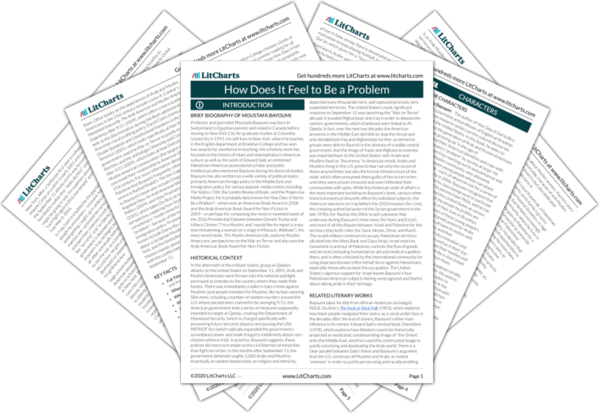Shisha Quotes in How Does It Feel to Be a Problem?
Preface Quotes
It seems barely an exaggeration to say that Arab and Muslim Americans are constantly talked about but almost never heard from. The problem is not that they lack representations but that they have too many. And these are all abstractions. Arabs and Muslims have become a foreign-policy issue, an argument on the domestic agenda, a law-enforcement priority and a point of well-meaning concern. They appear as shadowy characters on terror television shows, have become objects of sociological inquiry, and get paraded around as puppets for public diplomacy. Pop culture is awash with their images. Hookah cafés entice East Village socialites, fashionistas appropriate the checkered keffiyah scarf, and Prince sings an ode to a young Arab-American girl. They are floating everywhere in the virtual landscape of the national imagination, as either villains of Islam or victims of Arab culture. Yet as in the postmodern world in which we live, sometimes when you are everywhere, you are really nowhere.










